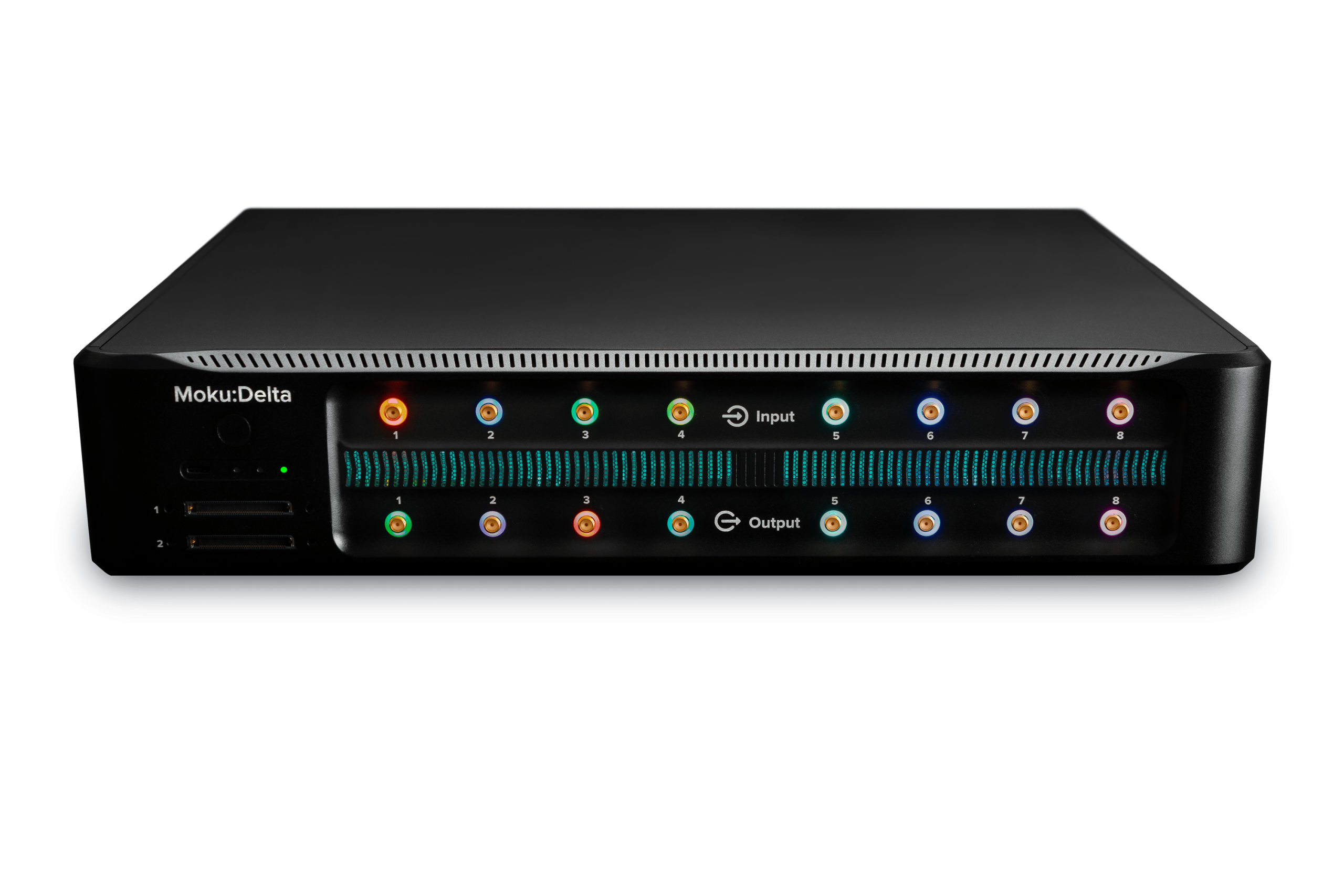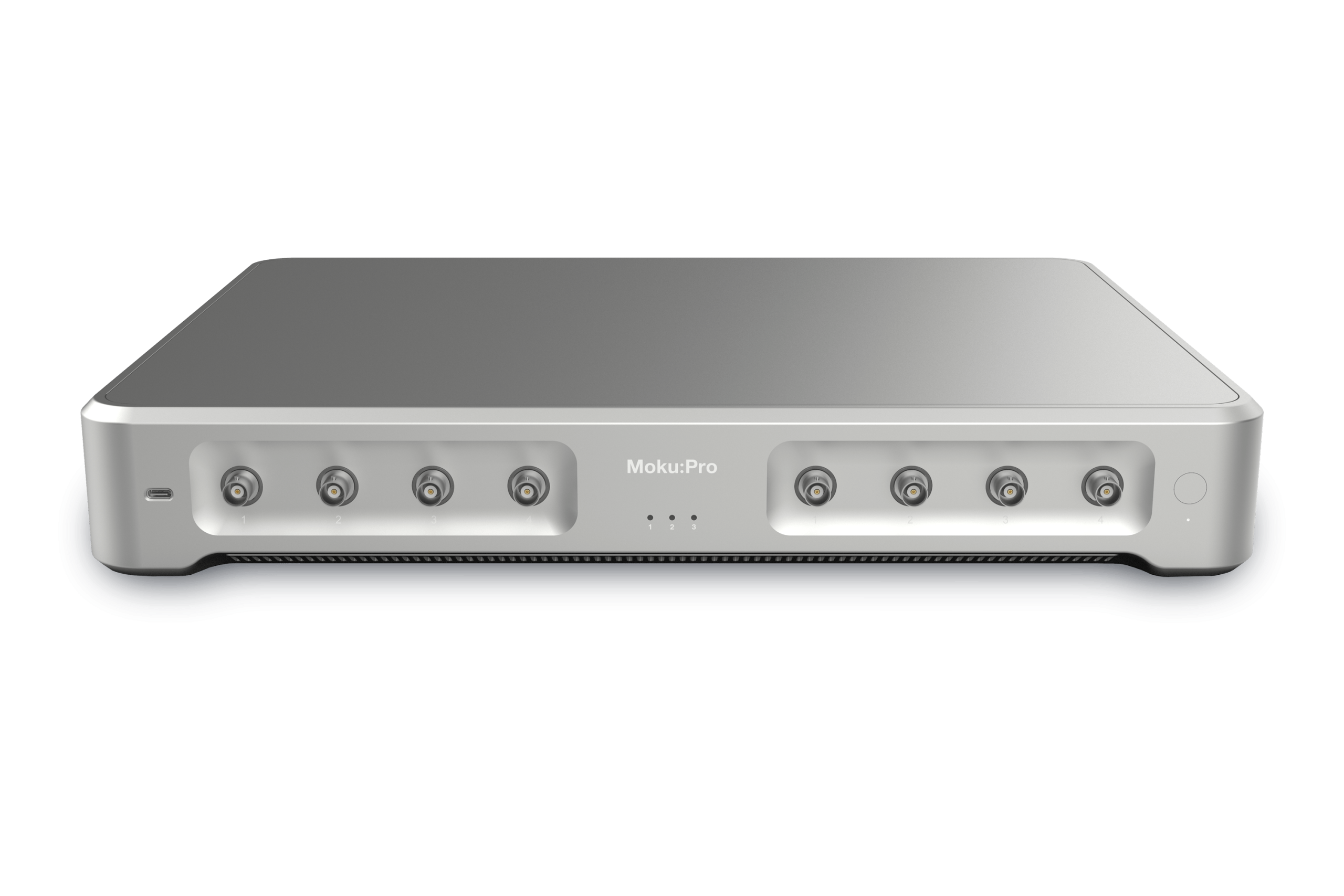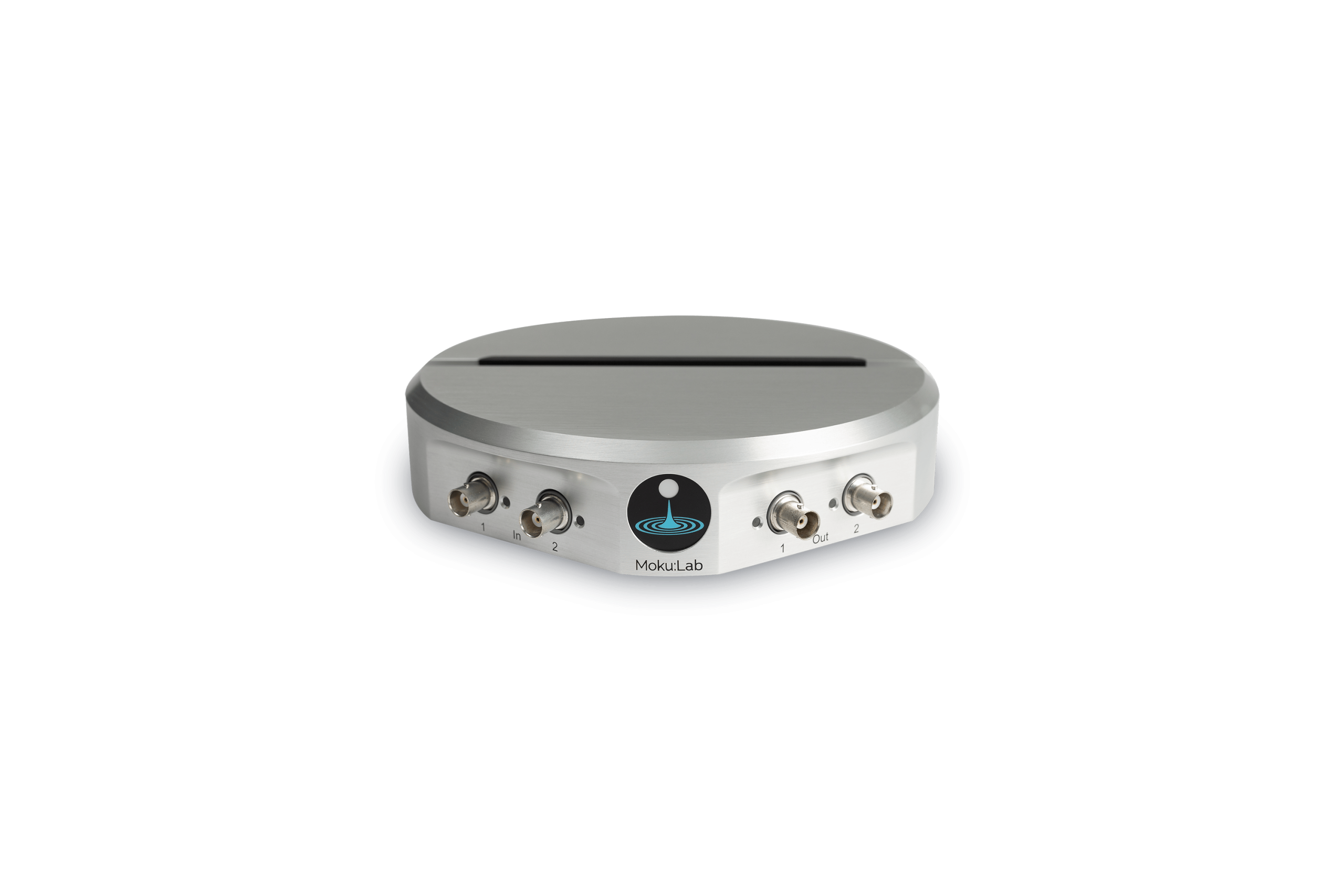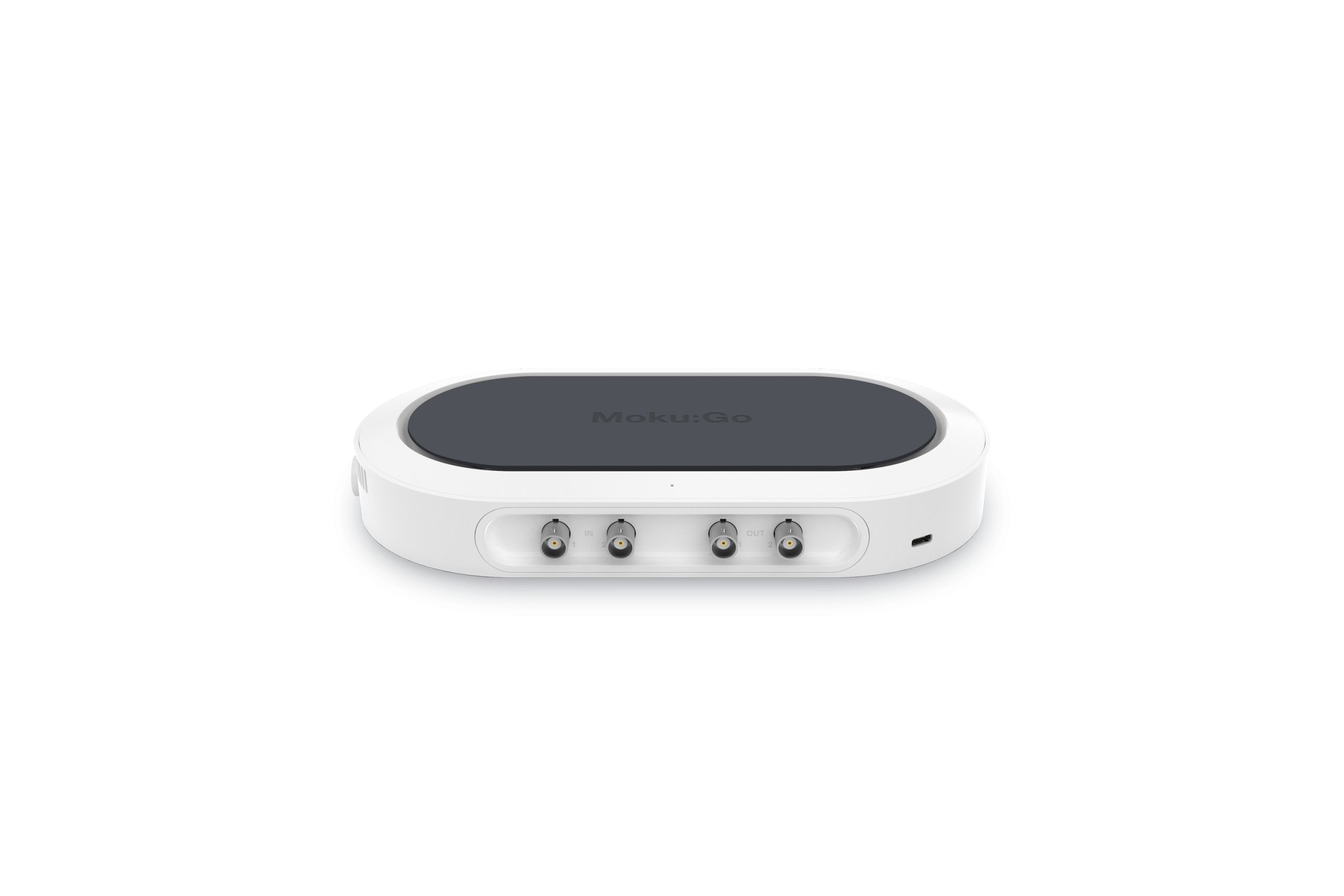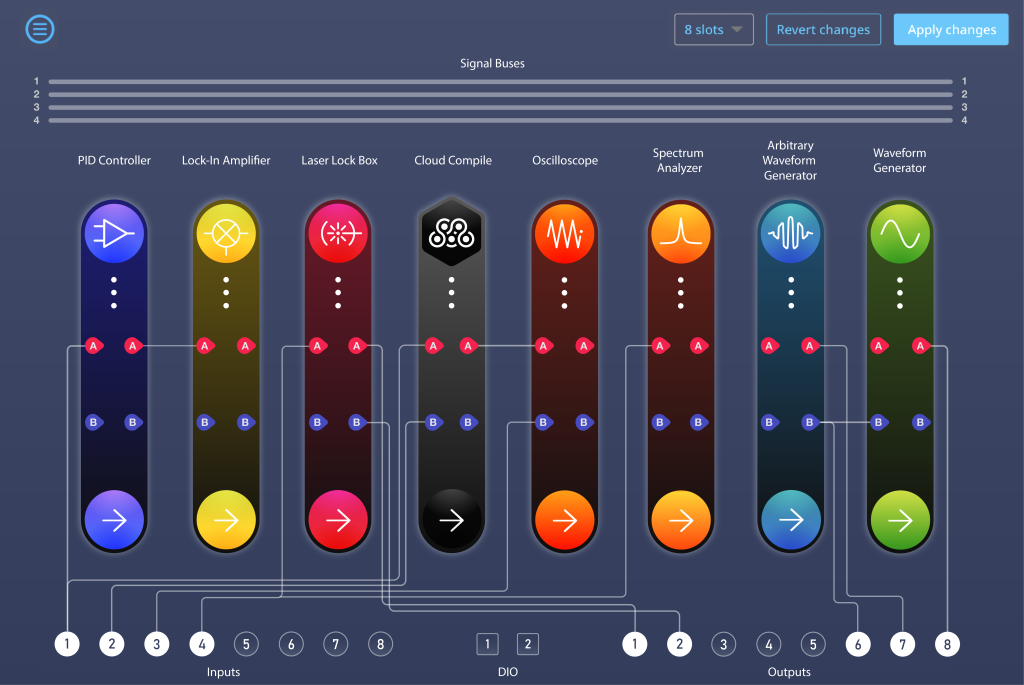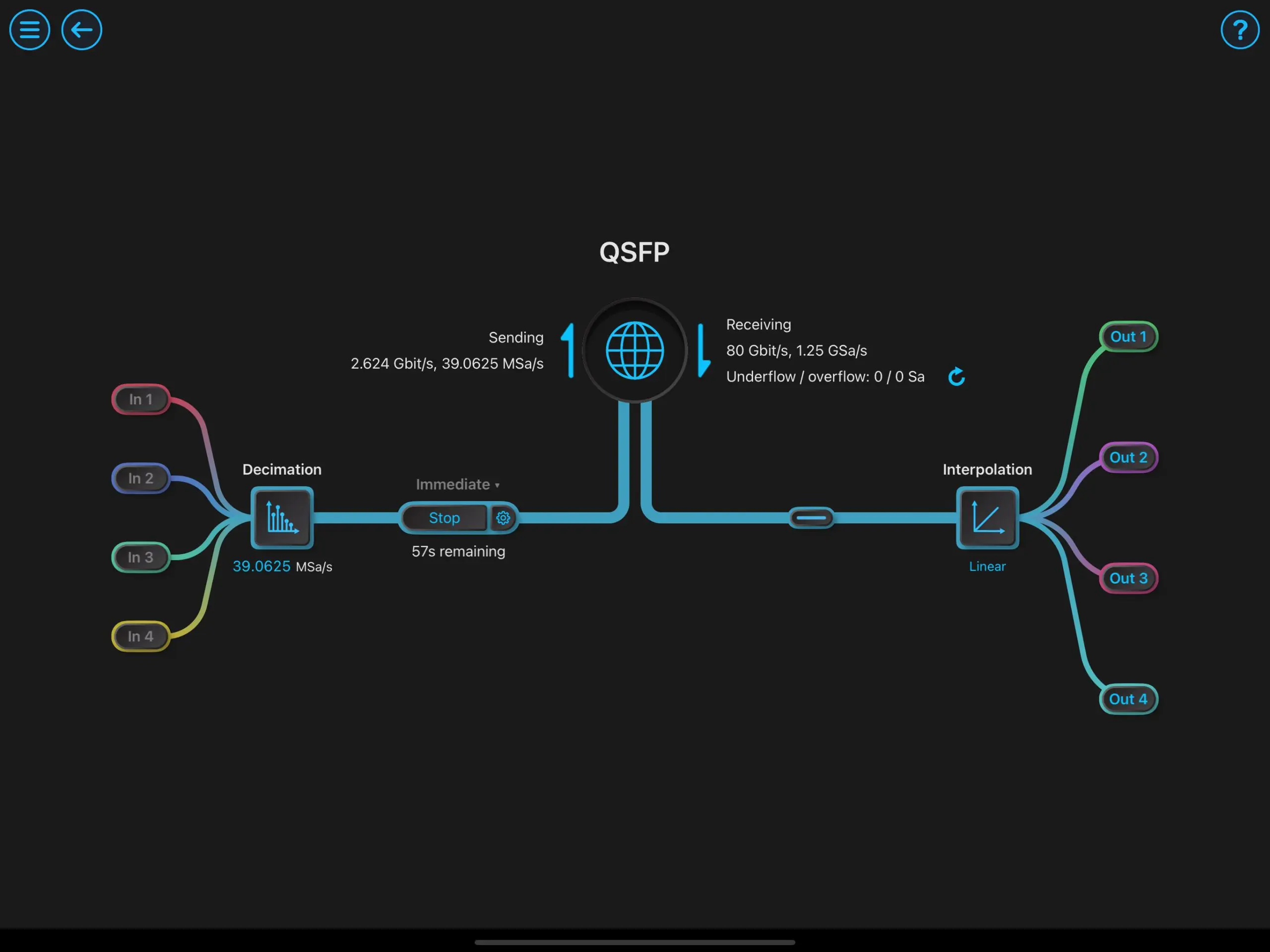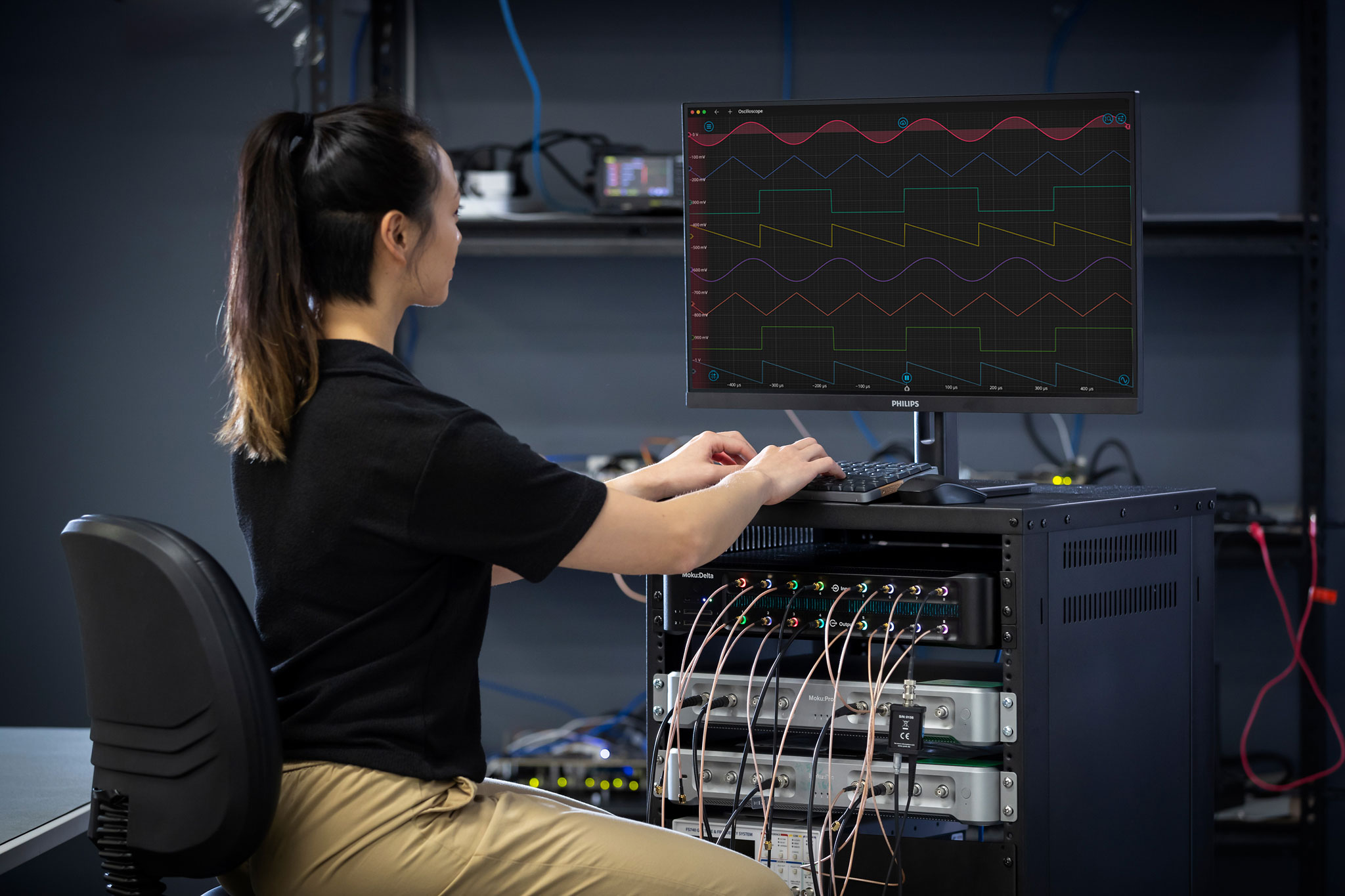Moku:Delta, the fourth-generation hardware platform from Liquid Instruments, is available now. As the most powerful device in the Moku family of reconfigurable instrumentation, Moku:Delta is built for complex test environments, delivering higher bandwidth, more analog channels, digital IO, lower noise, and up to eight instrument slots in Multi-Instrument Mode.
More bandwidth, more channels
Moku:Delta enables high-speed signal generation and capture with 2 GHz analog bandwidth and a 5 GSa/s sample rate across eight independent analog input and output channels.
From quantum research to aerospace to semiconductor testing, Moku:Delta adapts to demanding applications with unmatched speed and precision. A noise floor of < 10 nV/√Hz enables ultra-sensitive measurements, while blended 14-bit and 20-bit ADCs balance resolution and dynamic range. With 32 digital I/O channels, Moku:Delta enables real-time generation and decoding of mixed-signal protocols.
Billions of configurations
Moku:Delta brings reconfigurable instrumentation to the next level. With up to 15 integrated instruments, including the Waveform Generator, Oscilloscope, and Logic Analyzer / Pattern Generator, it can adapt to a wide range of tasks. Explore all software-defined Moku instruments here.
With Multi-Instrument Mode, users can run up to eight instruments simultaneously through partial reconfiguration of the FPGA, enabling over 2 billion possible instrument configurations. For those needing custom functionality or analysis tools, Moku Cloud Compile allows users to deploy their own FPGA code with minimal overhead.
With Multi-Instrument Mode for Moku:Delta, run up to eight instruments at once through partial FPGA reconfiguration.
Precision timing with GPS
At the foundation of any high-performance measurement system is precise timing. Blending up to four clock sources simultaneously, Moku:Delta delivers excellent phase noise and stability. The GPS-disciplined oscillator (GPSDO) supports 1PPS GNSS synchronization for accurate frequency, time, and phase measurements. Synchronize multiple Moku:Delta devices across geographically distributed locations to enable coordinated global experiments with nanosecond-level timing accuracy.
A wide range of applications
The flexibility of Moku:Delta makes it ideal for demanding applications across research and industry, including:
Quantum information science: Supports complex experiments with high channel density and sub-nanosecond synchronization. Instruments like the Moku Lock-in Amplifier and Time & Frequency Analyzer support coherent demodulation and single-photon detection.
Aerospace and defense: Adapts to evolving test requirements with reconfigurable instrumentation and GNSS-based synchronization for distributed system coordination. Monitor the spectrum across 2 GHz of instantaneous bandwidth in the Spectrum Analyzer while capturing up to eight signals simultaneously with the Data Logger.
Semiconductor IC design: Increases throughput and test coverage with parallel analog and digital test capabilities. Features like low-noise measurements, a true 0 Hz Spectrum Analyzer, and high-resolution Oscilloscope support deep characterization without compromise
To learn more about the next generation of reconfigurable instrumentation, including detailed specs and capabilities, visit the Moku:Delta page.
